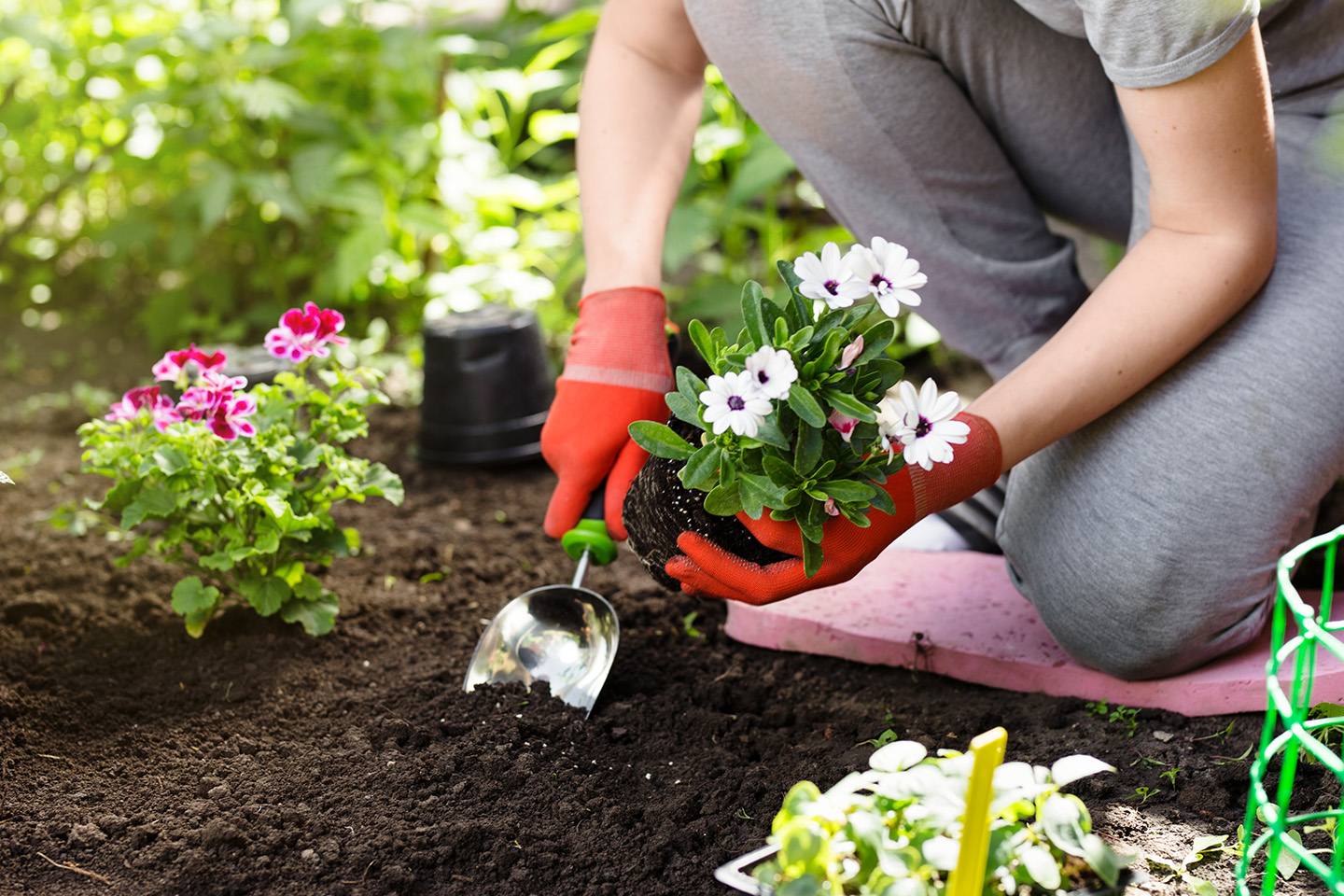Where to splurge and where to save in the garden
If your garden isn't summer ready just yet – don't panic. There's plenty of time to get your yard looking lush, and it won't cost you a fortune.
Flower Power horticulturalist Octavia Jones shares her tips on where to splurge and where to save when updating your garden this summer.
Be water wise
Following chronic water shortages, the Bureau of Meteorology's prediction for above average rainfall across eastern, northern and southwestern parts of the country is a welcome relief this summer.
While the dams enjoy the top up, water restrictions and the message to be ‘water wise' is expected to remain in place for most cities and towns across Australia.
Investing in a sustainable watering system should be a priority for gardeners if they want to keep their lawns green and plants pristine. Installing a rainwater harvesting system, drip line irrigation, or a tap timer are some of the most efficient and responsible ways to maintain your garden.
"Watering before 10am or after 4pm is ideal for your plants – and for you. It means you're avoiding being outdoors in the hottest part of the day, plus it gives the water an opportunity to soak right down into the root zone so the plants can use it, instead of evaporating under the hot summer sun," says Ms Jones.
Maximise memberships
Give your garden the edge by accessing expert advice, workshops and even discounts for gardening products by joining a club or community garden centre. You can even get access to rare seeds and plants to make your garden unique.
Don't forget to search for your local community garden that you can visit to swap seeds with other budding gardeners.
Invest in your soil
Good quality soil is a crucial part of your garden which helps promote the healthy development of your plants and flowers.
"Most soils need organic matter added to improve aeration, water holding capacity or nutrient levels to ensure the garden thrives. Investing up-front will reduce plant loss and allow you to achieve fuller, healthier plants much faster and for less money," advises Ms Jones.
DIY garden supplies
Compost is the gift that keeps on giving, and making your own is one of the best ways to save dollars and reduce waste. Start by finding a shaded area of the garden and decide if you want a specific compost bin or would rather utilise an area of your garden. If you don't have a garden, there are plenty of kitchen and balcony solutions out there too.
Begin your compost by introducing materials such as fruit and vegetable scraps, ground coffee, grass clippings, dry leaves, and newspaper shreds. Keep your compost healthy by regularly watering and tossing it and adding raw ingredients to speed up the process.
You can also make your own mulch to benefit both your garden and your wallet.
Be wise about what you buy
It can be so tempting when you go garden shopping to fill the trolley with a wide range of beautiful plants and flowers.
Instead of seeking the instant lush look, Ms Jones says to get advice from a horticulturist on correctly spacing your plants. "It might mean your garden beds have gaps to begin with, but over time they will fill out and you'll have happier, healthier plants with less investment," she says.
Rather than selecting expensive established plants from your local garden centre that can average anywhere from $16 to $20 per plant, save your dollars by starting from scratch with seeds for a lower price of $2 per packet. You can pick up a variety of seed packs for a small price – you just need patience as they grow!
You can also collect seeds from fruit or vegetables picked from your garden and use egg cartons or newspaper fixed into cylinders and filled with soil to start sprouting them. While they take a little more love and attention, you will have a sense of pride when you see that first sign of growth.
Get expert advice
If you're a beginner or have questions about how to maintain or improve your yard, talk to a horticulturist at your local garden centre before you spend any cash.
Ms Jones says, "if you come across any pests and disease in your garden, speak to one of our qualified horticulturists so you're not wasting money on incorrect product solutions. Getting the right advice on which plants to choose or what's really needed to fix a problem will ensure you know what to do."
The opinions expressed in this article are the opinions of the author(s) and not necessarily those of State Custodians.



 Login
Login
